Getting to Yes: Negotiating Agreement Without Giving In Paperback – Illustrated, May 3, 2011 by Roger Fisher et al.
PAPERBACK
[240 pages]
PUB: May 03, 2011
Description
Author: Fisher Roger
Brand: Penguin Books
Color: White
Edition: 3rd Revised ed.
Features:
- Penguin Books
Format: Illustrated
Package Dimensions: 22x196x209
Number Of Pages: 240
Release Date: 03-05-2011
Details: Product Description
The key text on problem-solving negotiation-updated and revised
Since its original publication nearly thirty years ago,
Getting to Yes has helped millions of people learn a better way to negotiate. One of the primary business texts of the modern era, it is based on the work of the Harvard Negotiation Project, a group that deals with all levels of negotiation and conflict resolution.
Getting to Yes offers a proven, step-by-step strategy for coming to mutually acceptable agreements in every sort of conflict. Thoroughly updated and revised, it offers readers a straight- forward, universally applicable method for negotiating personal and professional disputes without getting angry-or getting taken.
Review
“This is by far the best thing I’ve ever read about negotiation.”
—John Kenneth Galbraith
“The authors have packed a lot of commonsensical observation and advice into a concise, clearly written little book.”
—Businessweek
“A coherent brief for ‘win-win’ negotiations.”
—Newsweek
“
Getting to Yes has an unrivaled place in the literature of dispute resolution. No other book in the field comes close to its impact on the way practitioners, teachers, researchers, and the public approach negotiation.”
—National Institute for Dispute Resolution Forum
“
Getting to Yes is a highly readable and practical primer on the fundamentals of negotiation. All of us, as negotiators dealing with personal, community, and business problems need to improve our skills in conflict resolution and agreement making. This concise volume is the best place to begin.”
—John T. Dunlop
“This splendid book will help turn adversarial battling into hardheaded problem solving.”
—Averell Harriman
“
Getting to Yes is a highly readable, uncomplicated guide to resolving conflicts of every imaginable dimension. It teaches you how to win without compromising friendships. I wish I had written it!”
—Ann Landers
“
Getting to Yes is powerful, incisive, persuasive. Not a bag of tricks but an overall approach. Perhaps the most useful book you will ever read!”
—Elliot Richardson
“Simple but powerful ideas that have already made a contribution at the international level are here made available to all. Excellent advice on how to approach a negotiating problem.”
—Cyrus Vance
About the Author
Roger Fisher is the Samuel Williston Professor of Law Emeritus and director emeritus of the Harvard Negotiation Project.
William Ury cofounded the Harvard Negotiation Project and is the award-winning author of several books on negotiation.
Bruce Patton is cofounder and Distinguished Fellow of the Harvard Negotiation Project and the author of
Difficult Conversations, a
New York Times bestseller.
Excerpt. © Reprinted by permission. All rights reserved.
Chapter 4: Invent Options for Mutual Gain
The case of Israel and Egypt negotiating over who should keep how much of the Sinai Peninsula illustrates both a major problem in negotiation and a key opportunity.
the pie that leaves both parties satisfied. Often you are negotiating along a single dimension, such as the amount of territory, the price of a car, the length of a lease on an apartment, or the size of a commission on a sale. At other times you face what appears to be an either/or choice that is either markedly favorable to you or to the other side. In a divorce settlement, who gets the house? Who gets custody of the children? You may see the choice as one between winning and losing- and neither side will agree to lose. Even if you do win and get the car for $12,000, the lease for five years, or the house and kids, you have a sinking feeling that they will not let you forget it. Whatever the situation, your choices seem limited.
option like a demilitarized Sinai can often make the difference between deadlock and agreement. One lawyer we know attributes his success directly to his ability to invent solutions advantageous to both his client and the other side
Be the first to review “Getting to Yes: Negotiating Agreement Without Giving In Paperback – Illustrated, May 3, 2011 by Roger Fisher et al.”
You must be <a href="https://webdelico.com/my-account/">logged in</a> to post a review.

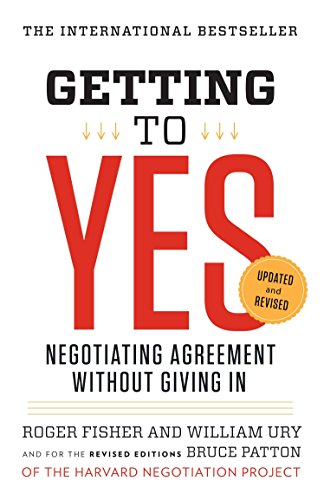
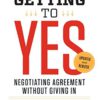
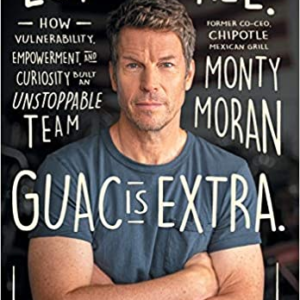
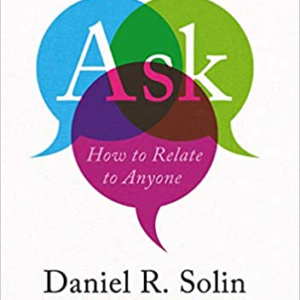

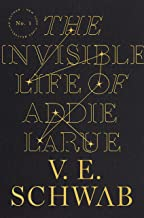



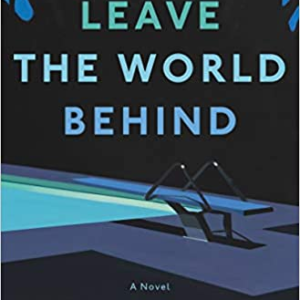



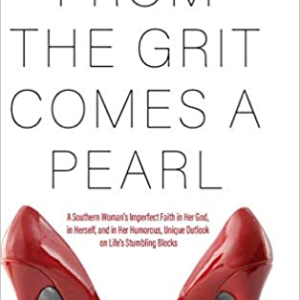













There are no reviews yet.